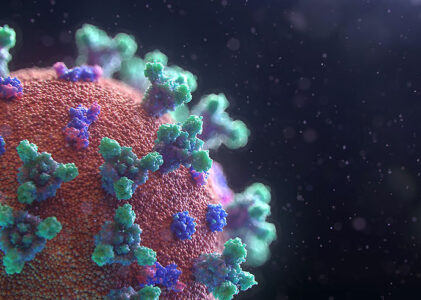The COVID-19 crisis has caused chaos around the world, making society realise we are a fragile race, and not as advanced as one might assume. The future however is bright, not only for this pandemic, but for viral outbreaks in the future. Here are 4 ways we will be able to use technology to deal with the effects of a pandemic in the future.
1. Work Remotely With BCI
Right now, majority of people are working from home, struggling to adjust to the new environment, possibly not even having the hardware required to carry out your work. With the introduction of brain-computer interfaces (BCI), it would be possible to work remotely without the need of a computer, simply using the chip embedded in your brain to send and receive emails, browse the web and fill out your excel spreadsheets. Meetings could even be done ‘face-to-face’ in real-time, just as if they were standing next to you. This would also help students in school and university. The possibilities are endless with brain-computer interfaces, even more so on the next point.
2. Live Virus Testing
Having a computer in your brain means it can monitor your body in real-time to detect if there is something wrong. It is definitely within reach to suggest your brain computer interface could warn you as soon as you begin to have a fever, or show any signs of a disease for that matter. This would enable you to immediately self-isolate and seek medical advice, beginning treatment before the virus progresses. Going further into the future, viral and bacterial sensors could be used to detect the exact disease you have in real-time, removing the need for manual tests and allowing for live statistics to drive isolation rules and guidelines.
3. AI Decision Making
One thing this world event has made very clear, is that people think they know better than the professionals making decisions for us. Even though humans make mistakes, the people in their position are there for a reason and we must trust their decisions for the best chance at the best outcome. In the future however, there will be no arguments that can be made. Artificial intelligence will have the job of making decisions for us. This technology is currently being implemented in the manufacturing sector through the 4th industrial revolution (Industry 4.0), where manufacturing can be autonomously controlled by AI according current market conditions and performance. Using AI to decide who, where, when and low long to isolate will make the process efficient, reducing unnecessary restrictions while keeping essentials in place, adapting in real time to the volatile situations that occur.
4. Nanobots
What if you didn’t have to wait for a virus to pass? What if you didn’t need medication to treat disease? In the future, tiny robots (nanobots) will be able to be released into our body to target and destroy pathogens, while leaving the rest of the body unharmed, quickly and efficiently removing diseases from the body. These robots could be programmed to target a specific disease, or could be used for a general check-up and maintenance of the body. In a serious pandemic, they could be released in a swarm to the public, autonomously seeking and checking humans for disease unobtrusively.
Even though it seems the world has been hit hard by the coronavirus, it could easily have been much worse and we are in a lucky situation where there is a low mortality rate. If the mortality rate was even a few percent higher, it could be a different story and we must be prepared in the future for the next inevitable pandemic. Technology is the way forward. We must apply the lessons we have learnt and devote further resources to medical and technology research in order to be ready for the next global event.


